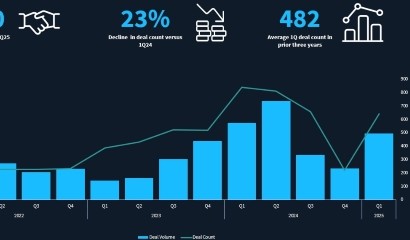Wheels Up’s latest transaction pulls it out of a stall, but can it finally gain altitude? – 3Q23 Credit Report
SUMMARY
Wheels Up is at a critical inflection point. While it will need to continue making significant progress towards improving its cost structure, profitability, and customer experience, we believe the latest transaction underscores Delta’s commitment and should offer the company a sizable window to strategically overhaul the business. It is critical that the company restores customer confidence and stabilizes its deferred revenue and working capital, which if successful should be apparent over the next two quarters. Our base case shows that Wheels Up will burn USD 148m of cash over the NTM leaving it with liquidity of USD 151m on 30 September 2024, and that the company’s current liquidity should be sufficient to sustain it through the maturity of the 2028 PIK term loan without needing to tap the revolving credit facility. Our downside case shows that Wheels Up will be at risk of violating its minimum liquidity covenant in 4Q24 and depleting its liquidity in 1H25; however, given recent events we view this outcome as unlikely.
OVERVIEW
Wheels Up Experience Inc. (Wheels Up) is a New York City based provider of fractional, on-demand private aviation services. When the company went public via SPAC in July 2021 it was riding the coattails of COVID-era excesses and a surge in private aviation demand resulting in rapid growth with 1Q21 revenue up 68% year-over-year (YoY) to USD 262m and the number of active members up by 56%. It had also signed a cornerstone strategic partnership deal in 2019 under which Delta Airlines folded Delta Private Jets into Wheels Up and took a 27% stake in the company. However, the story began to unravel in 1Q23 as it became clear the business plan and growth-at-all-costs strategy were fundamentally flawed and that the founder and CEO, Kenny Dichter, was a talented entrepreneur but lacked the operational expertise to execute and see the company through to profitability. Internal incentive structures were also misaligned. Even though Wheels Up burned USD 244m of free cash flow from 2021-2022, Dichter’s total compensation (which was tied to revenue and membership growth) was USD 8.7m in 2022, surpassing that of American Airlines CEO Doug Parker (USD 6.5m) and Southwest Airlines CEO Gary Kelly (USD 4.9m). Plagued by chronic mismanagement, high turnover among key personnel, an untenable cost structure, and the waning of private aviation demand post-COVID, Wheels Up faced further deterioration in its liquidity position leading to the 4Q22 issuance of a USD 270m EETC backed by a majority of the company’s owned aircraft. In 1H23 it entered a downward spiral as membership numbers began to decline for the first time and its persistent cash flow burn started to become terminal. Concerns of financial difficulty along with operational challenges led to a severe working capital deficit resulting from customer apprehension in purchasing pre-paid blocks that impacted its deferred revenue balance. Overnight, the company’s significant working capital surplus, crucial for its growth, transformed into a substantial deficit of around USD 130m per quarter.
Wheels Up began to accelerate its turnaround efforts culminating with Kenny Dichter stepping down in May 2023 and the appointment of CFO Todd Smith as acting CEO, among several other leadership changes. While new leadership offered a compelling plan for a turnaround that started to show results, cash burn of over USD 200m per quarter and liquidity of only USD 363m at 1Q23 meant that success was unlikely. In 3Q23 Wheels Up faced the imminent risk of violating its USD 125m minimum liquidity covenant under the equipment notes and the prospect of in-court restructuring. In August, Wheels Up disclosed that there was substantial doubt regarding its ability to remain a going concern, and in response a consortium led by Delta (including Knighthead and Certares) stepped in which initially saw Delta provide a USD 70m bridge loan and culminated with the closing of a USD 390m PIK interest term loan (proceeds of which were used to pay off the bridge loan) and a USD 100m revolving credit facility from Delta. In connection with the deal, term loan investors received newly issued shares equal to 95% of Wheels Up’s outstanding equity on a fully diluted basis, the minimum liquidity covenant was amended to USD 75m, and George Mattson was appointed as CEO (with aviation industry background as a longstanding member of Delta’s board, former co-head of the Global Industrials Group at Goldman Sachs, and Chairman of Tropic Ocean Airways). Additionally, to further bolster liquidity Wheels Up sold its aircraft management business for USD 19.1m of possible cash consideration (USD 13.2m in cash at close and USD 4.8m of contingent consideration).
The recent transaction marks a significant expansion of the strategic partnership with Delta and demonstrates Delta’s resolve to support Wheels Up as it executes its turnaround. Delta’s significant equity stake in the business and influence over the board of directors marks a new level of integration between the two companies, with Delta already providing significant operational expertise and personnel to Wheels Up. It also provides Wheels Up with Certares’ experience in premium travel (e.g., American Express Global Business Travel, LATAM Airlines) and with Knighthead’s restructuring experience.
DEBTWIRE ESTIMATES AND FINANCIAL PERFORMANCE
Wheels Up notched another quarter of precipitous decline in 3Q23 with revenue down 23.9% YoY to USD 320m. The number of active flight legs decreased by 15% YoY due to decreased demand and management’s efforts to focus on fewer, more profitable flights, which drove flight revenue to decline by 23% YoY to USD 214.7m. Correspondingly, membership revenue declined by 8% YoY to USD 20.6m due to a 15% decrease in active members. Other revenue decreased by 47% YoY to USD 31.6m due to a USD 33m decrease in sales of aircraft inventory as the company has reduced its focus on whole aircraft sales. As mentioned, the aircraft management business was sold during the quarter which provided USD 53.2m of revenue in 3Q23.
The company’s restructuring efforts have started to bear some fruit with gross margin increasing to 6.3% versus the last-twelve-months (LTM) average of 2.7%. Adjusted EBITDA also improved to negative USD 16.6m from negative USD 43.7m in 3Q22.
Under a base case scenario that assumes Wheels Up rapidly stabilizes its working capital (the company stated in its latest earnings that it believes its cash balance will be flat to up next quarter vs 3Q23), stabilizes its membership attrition, achieves modest but positive EBITDA starting in 1Q25, and is able to successfully return to a stance of modest growth in 2025, we believe the company’s current liquidity should be sufficient to sustain it through the 2028 term loan maturity without needing to tap the USD 100m Delta liquidity facility. However, this scenario is highly sensitive to assumptions about deferred revenue. If we assume working capital is not immediately stabilized and customers remain apprehensive about buying large pre-paid blocks, the company could be at risk of breaching its minimum liquidity covenant in 2027 in our model and will need to find a way to cover the 2028 maturity of the term loan and revolving credit facility. We show the term loan face value will be USD 626m at the September 2028 maturity. If the equipment notes are paid off in full management can elect to pay interest in cash which may be a possibility under our base case.
In a downside case that assumes confidence is not sufficiently restored in the company leading to working capital not stabilizing, active membership continuing to decline, and EBITDA margin improving more modestly but remaining negative, our model shows that it will be at risk of violating its minimum liquidity covenant in 3Q24 and fully depleting its liquidity in 4Q24. Again, we believe it should be clear over the next 1-2 quarters whether this low case will occur, although it is unlikely in our view based on Delta’s extraordinary support and management commentary indicating their expectation that deferred revenue will stabilize in 4Q23.
LIQUIDITY
Wheels Up has liquidity of USD 339m pro-forma for the USD 40m incremental term loan issuance (inclusive of the USD 75m minimum liquidity covenant under the Equipment Notes). Under our base case we show that the company will burn USD 188m of cash over the NTM leaving it with liquidity of USD 151m on 30 September 2024. Wheels Up’s restricted cash balance is mostly comprised of a USD 20m equipment note reserve deposit, which is included in the calculation of the minimum liquidity covenant. The company stated that it believes its YE24 cash balance will be flat or slightly up versus 3Q23 as a result of improving profitability, a stabilization of deferred revenue and working capital, and the incremental term loan issuance. The company’s USD 100m liquidity facility is accessible if liquidity falls below USD 100m.
Our valuation for Wheels Up reflects a midpoint EV/Revenue multiple of 1.0x (in line with peer multiples) and 2026E revenue of USD 1,001m. At the midpoint, the equipment notes and the term loan are fully covered and the implied equity value is USD 1.08. As of 31 December 2023, Wheels Up’s public float was under 5% of total outstanding shares which has contributed to significant volatility of the share price.
BUSINESS DESCRIPTION
Wheels Up Experience Inc. (Wheels Up) is a provider of on-demand private aviation services, and its fleet of 215 owned or leased aircraft makes it one of the largest private aviation companies in the world. The company generates revenues through flights (79% of NTME revenue), membership fees (8% of NTME revenue), and other services (13% of NTME revenue). On 30 September 2023 the company completed the sale of its non-core aircraft management business for a total maximum consideration of USD 19.1m. Wheels Up went public via a reverse merger with Aspirational Consumer Lifestyle Corp, a special purpose acquisition company (SPAC), in July of 2021. The company was founded in August 2013 by Kenneth Dichter.
Wheels Up’s strategic partnership began in January 2020 when Delta combined Delta Private Jets (a wholly owned subsidiary that provided aircraft charters, aircraft management, and a program allowing members to purchase flights by the hour) with Wheels Up. This transaction established one of the world’s largest owned and managed fleet of private aircraft and granted Delta a 27% stake in the combined entity. The partnership entailed a commercial agreement whereby Wheels Up members could gain status in Delta’s SkyMiles loyalty program, earn bonus miles, and use prepaid block funds for tickets on Delta flights. The partnership was recently expanded through the new transaction, for which Delta contributed USD 150m to the term loan and a USD 100m liquidity facility. As of 31 December 2023, Delta had a 38% ownership stake in Wheels Up with voting interest capped at 29.9%. Wheels Up is Delta’s largest investment in an unconsolidated entity.
Wheels Up’s restructured board of directors is comprised of four directors selected by Delta, two directors selected by Certares Management LLC, two directors selected by Knighthead Capital Management LLC, and one director appointed by Cox Enterprises. Additionally, one company executive will join the board, and two independent directors will remain from the previous board.



















